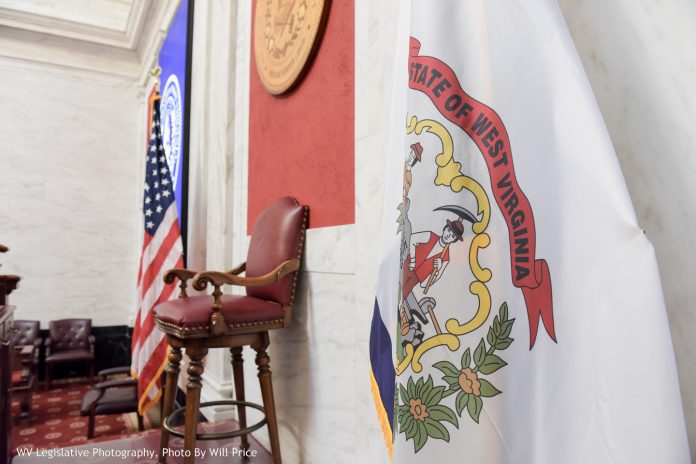Senate President Kessler Proposes Legislation Setting Aside A Portion of Natural Gas Severance Taxes
Senate President Jeff Kessler’s proposal to create a Future Fund using a portion of the West Virginia’s proceeds from the booming natural gas industry continues to gain bipartisan support and will be a priority in the Senate during the 2014 legislative session.
The idea is that each year the state would set aside 25 percent of any severance taxes after $100 million has been collected from the industry. The fund would then be encumbered for a number years to allow proper long-term growth. The money could eventually be used for everything from increasing teacher and public employee salaries to infrastructure projects. The fund also might enable the state to provide tax relief. Long term, it will serve as an economic stabilizer to allow wealth and prosperity to remain in West Virginia well after the natural gas boom has ended.
During the recent economic recession our leaders made sure that West Virginia stayed on solid financial ground. Our bills were paid on time and we were not forced to borrow money or furlough workers like many other states. Kessler believes that now is the time to use that same fiscal vision in planning for the future.
“If we can create this fund and start putting money in it now, it will send a powerful signal to Wall Street that West Virginia, during these tough economic times, is not only balancing its budget but saving for the future,” Kessler said.
Kessler spearheaded a trip of 19 legislators to North Dakota in August, where they studied the specifics of how that state set up a similar fund. Many lawmakers that have supported the Future Fund bill in the past thought the trip was helpful in showing them a detailed roadmap of how to set up the fund and get the legislation passed. The North Dakota fund experienced some barricades along the way that lawmakers in West Virginia hope to avoid.
North Dakota’s Legacy Fund has collected about just north of $1.25 billion since it was enacted in 2011, exceeding forecasts by roughly 40 percent. However, it was only successful on its third attempt, failing on two tries prior. Years ago North Dakota set up a fund, to pay for future projects through severance taxes. However without proper provisions to prevent it, lawmakers ended up raiding the fund when annual budgets got tight.
In 2009, North Dakota attempted to establish a constitutional fund that could not be tapped. Voters rejected that amendment because the initial percentage of tax revenues it would have collected was far too high.
Finally, in 2010, voters overwhelmingly approved a second constitutional amendment that collects 30 percent of oil and gas tax revenue for the fund and cannot be spent at all until 2017. Once legislators do begin to tap into the fund, they will primarily be using the interest. Spending any of the principal requires at least a two-thirds vote in both bodies of the Legislature and prevents them from spending more than 15 percent of the principal in any two-year period.
“We can set up the framework statutorily,” Kessler said. “We will need some constitutional controls on how we spend it, so that future Legislatures can’t just grab it and spend it. You have to dedicate it, as mandated by the voters. It can only be used for things like infrastructure, economic development and educational enhancement. It is to improve the state’s lot in the long term, rather than smaller, local projects here or here.”
An amendment to the West Virginia Constitution would have to be approved by two-thirds of both the House and the Senate and would also need to be approved by state voters.
Many lawmakers have expressed regret that the state did not set up a Future Fund many years ago using a portion of the severance taxes from coal. Had a similar fund been set up a generation ago, the wealth the state could draw from today would likely be astronomical. Kessler views the natural gas boom as a second chance and he wants all of West Virginia to share in it. He has said that while he wants to give a portion of the additional money to the gas producing counties of origin (similar to how the coal severance tax is dispersed currently), he would also like to give a boost to the counties that are historical energy producers.
“We missed the boat in the past but we have the chance now to give these counties an opportunity to lift themselves up with this new energy resource to help diversify their economies,” Kessler said. “I want to see a portion of it go back to those coal-producing counties that helped the state so much in the past.”
Despite a couple of lean budget years on the horizon, Kessler believes it is always prudent to plan for the future. With proper vision now, the state may spare itself the hardship of cutting budgets in the future.
“It’s going to help all of West Virginia, every single county and every single citizen, Kessler said. It will help our economy to create wealth for the entire state.”

